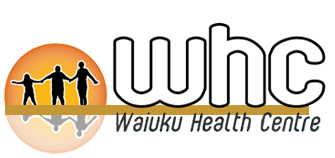We need iron to produce haemoglobin in our blood, which carries oxygen around our body. If iron is deficient in the body, the production of haemoglobin is reduced, the red cells are therefore reduced or weak, and this is known as anaemia.
There may be no symptoms at first, then tiredness, weakness, breathlessness, faintness and loss of interest in things are the main symptoms.
Who needs more and why?
– Babies, children and teenagers because they are growing rapidly
– Girls and women who have periods, due to loss of blood each month
– Pregnant women who need enough iron for themselves and their growing baby. This is particularly true towards the end of pregnancy when the baby is growing most rapidly.
– Athletes, particularly endurance runners
Diet
Adults should limit milk intake to 500 mL a day while on iron tablets. Avoid excess caffeine, fad diets and excess processed bread. Eat ample iron-rich foods (especially protein).
Protein foods
• meats: beef (especially), veal, pork, liver, poultry
• fish and shellfish (e.g. oysters, sardines, tuna)
• seeds (e.g. sesame, pumpkin)
• eggs
Fruits
• dried fruits (e.g. prunes, figs, raisins, currants, peaches)
• juices (e.g. prune, blackberry)
• most fresh fruit
Vegetables
• greens (e.g. spinach, silver beet, lettuce)
• dried peas and beans (e.g. kidney beans)
• pumpkin, sweet potatoes
Grains
• iron-fortified breads and dry cereals
• oatmeal cereal
The iron in meat, fish and chicken is called haem iron and is more abundant and more easily absorbed than the iron in vegetables, which is called non-haem iron. It is best to get iron from a variety of sources – protein in meat also helps your gut absorb non-haem iron.
To increase the absorption of non-haem iron try to have vitamin C <http://www.nutritionfoundation.org.nz/nutrition-facts/vitamins/vitamin-c> rich foods – such as kiwifruit, citrus fruits, orange juice and capsicums – at the same time. For example, a glass of orange juice with your breakfast cereal will increase the iron absorbed from the cereal.
Tea reduces the amount of iron absorbed by the body. Drink tea between meals, or wait at least ½ -1 hour after eating.
Medication
Iron supplements are usually tablets, but if you need a lot of additional iron your doctor may give you an injection. Iron tablets turn your bowel motions black and can cause indigestion, constipation, diarrhoea or nausea. If so, your doctor may change them. Vitamin C also helps you absorb the iron in iron tablets.
• Take iron on an empty stomach (e.g. 30 minutes before meals)
• Take vitamin C to help absorption
• Wait 2 hours before taking other medications such as antacids
• Take iron tablets with a small amount of food (not milk) if they upset the stomach
• Continue the tablets for at least 3 months
In children iron is best given daily before meals with orange juice (not milk). Liquid iron can discolour children’s teeth – drinking it through a straw helps avoid this. Milk intake should be no more than 500 mL a day.
Links to more information about iron
Nutrition Foundation
Links with Iron rich recipes
Recipes
